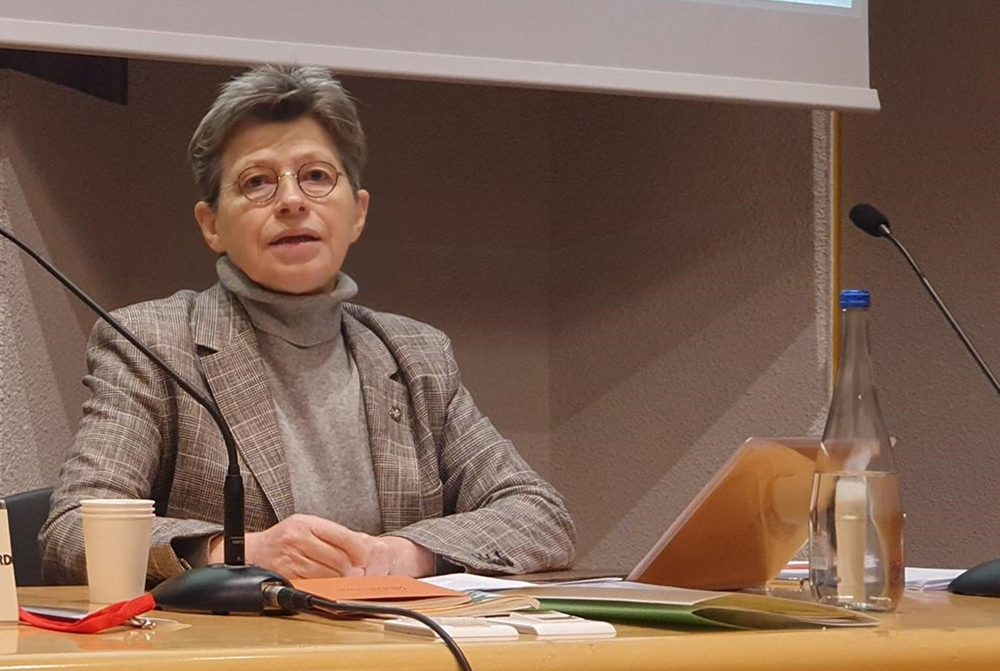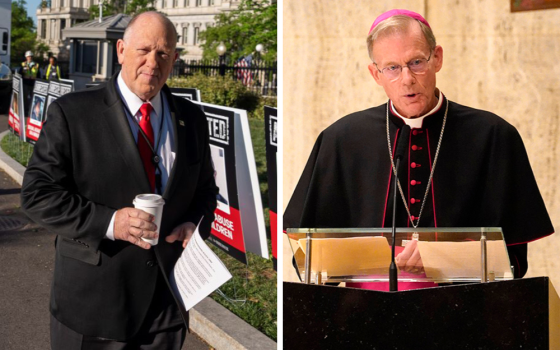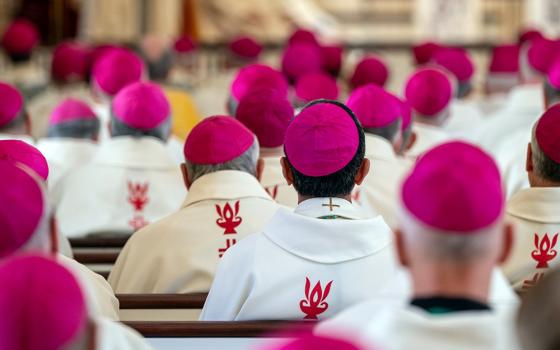
Dominican Sr. Véronique Margron, who has been president of Conférence des Religieux et Religieuses de France (CORREF) since 2016, is pictured in a Nov. 21 photo at CORREF's general assembly in Lourdes, France. (OSV News/Courtesy of CORREF)
As part of the ongoing safeguarding reform in the church in France, Conférence des Religieux et Religieuses de France (CORREF) adopted an official charter, or vademecum, on "Fundamental Rights in Religious Life" to guarantee better governance within communities and avoid potential abuse of authority. Nearly 300 superiors of religious communities, both men and women, gathered at the shrine of Lourdes, France, for a general assembly from Nov. 21-25.
"The abuse tragedy revealed that we are all in this together," Dominican Sr. Véronique Margron, who has been president of CORREF since 2016, told OSV News. "No one pretends to be perfect. This crisis makes us more modest, more grounded in reality and in the truth."
Those present represented congregations and institutes of different origins, ages, missions, sizes and sensibilities. "The diversity was immense, but we experienced a moment of great fraternity and solidarity, despite the seriousness of the issues addressed," Margron said.
Margron has been listening to hundreds of victims of abuse in religious institutions for the past several years. She is a key figure in the management of abuse in the church in France. "It has become a ministry for me," she told OSV News. Her 2019 book — Un moment de vérité (A Time of Truth) — deals with the abuse crisis in the Catholic Church.
"These crimes were systemic in nature. The response must therefore be systemic. It is a question of changing ways of life, where necessary, so that all the members of the community can cultivate their spiritual maturity and be profoundly happy and free," she said.
"This crisis is transforming us," Margron concluded. "The Gospel transforms us, and the God of the living never ceases to transform us." "That does not mean we are forgetting our roots. It is rather that if you are rooted in a tradition, you are not afraid to let yourself be transformed."
Advertisement
The new French charter is based on recommendations of the Independent Commission on Sexual Abuse in the Church. CIASE published a landmark report in October 2021, revealing a massive phenomenon of sexual assaults committed in the Church since the 1950s, estimated to have affected over 300,000 victims, and a "systemic" cover-up.
In this context, the purpose of the new charter is to guarantee the rights of members of religious communities. "The taking of vows in a monastery must not deprive anyone of essential rights," Margron explained. "This includes respect for freedom of conscience and political vote, freedom to choose one's confessor, opportunity to receive solid training, respect for physical integrity, decent working conditions, the right to rest, social protection. All of this seems self-evident, but it had to be put down on paper."
"When you join a religious community, you are very generous, ready to give up everything," she said. "This makes you vulnerable. You must not lose your critical mind and your ability to think for yourself. It is up to the community to ensure that your rights are protected, because you would spontaneously agree to give them up, especially if the authority claims to be acting in the name of the faith and for the church."
To draw up what Margron describes as an "educational tool," CORREF called on the services of a specialist in canon law, as well as civil law experts. "The aim was to bring together the rights scattered throughout canon law and the texts of the Magisterium concerning religious life, by cross-referencing them with fundamental rights texts such as those of the European Convention on Human Rights," the sister explained.
One of the elements provided for in the charter is the setting up of legal and psychological training courses for superiors, with the involvement of professionals. "We can no longer govern alone after abuse (occurrences). We need help from experts outside the church," the sister insisted. "We must be wary of enclosed systems, which can encourage perversions of authority, especially because of the relationship with the sacred, which can lead some people to exercise destructive power."
"The government of a community must not be solitary," said the president of CORREF. "It must always be limited in time, with certain exceptions, and there must be no omnipotence. Counterpoints are needed in the exercise of authority."
"Now we have to look to the future with hope," Margron summed up for OSV News. "We must not forget these indelible crimes, and we must continue to encourage the victims to speak out. But we must work in the present to put solid safeguarding (procedures) in place," she stressed.





